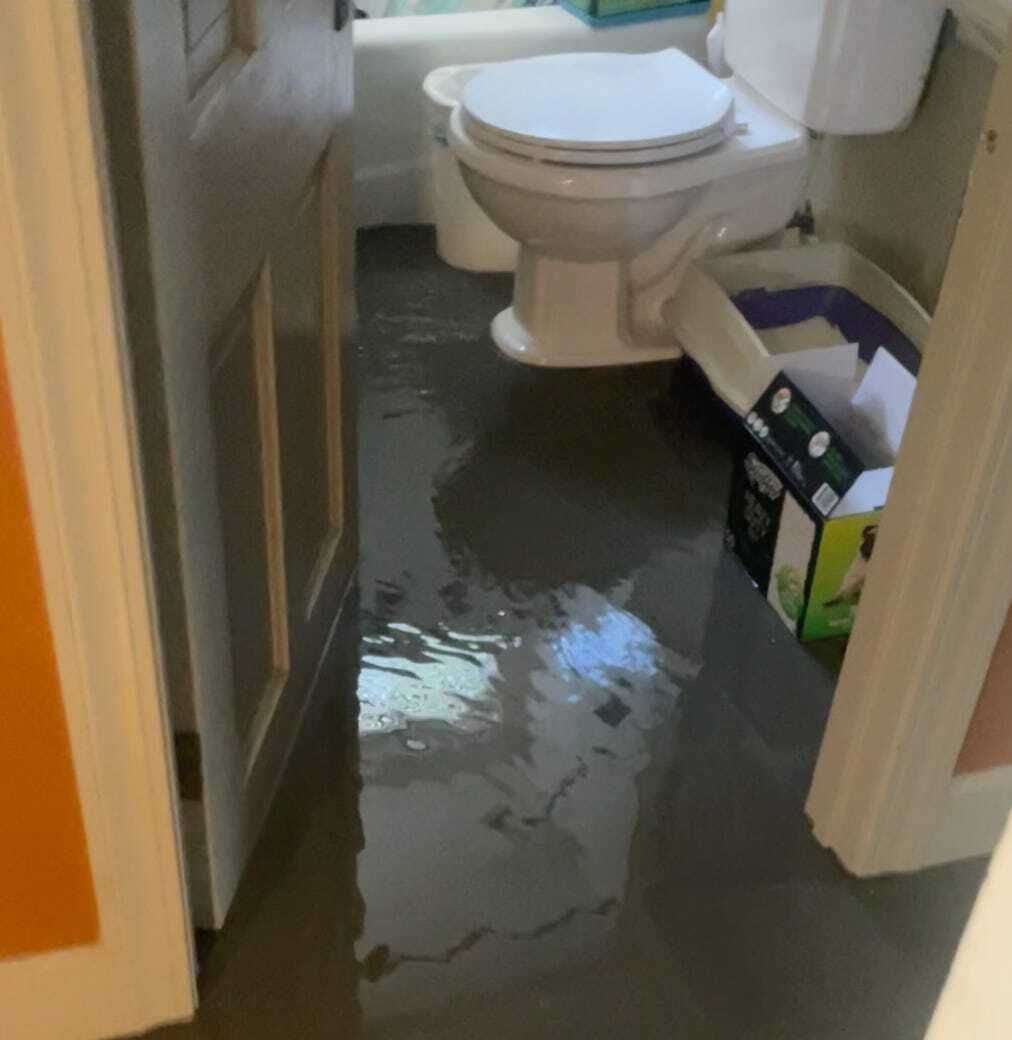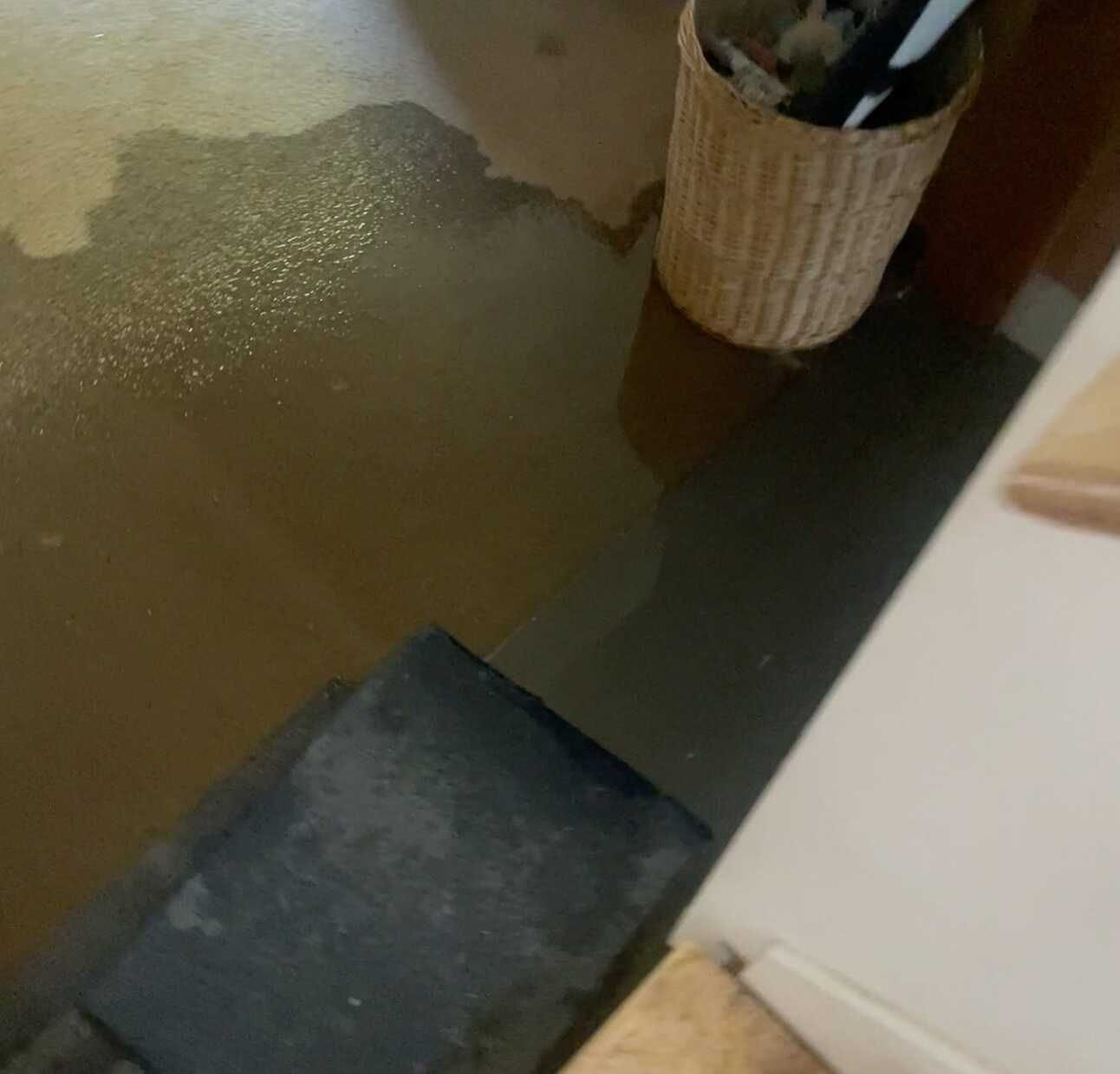When Toilet's Explode. Mastering Disaster Management
It's OK to panic a little, but then you gotta dig in and get to work.
Welp, the basement flooded.
My wife called me at work to tell me that the downstairs was quickly filling with water and, ostensibly, that we now had a fun new project to enjoy.
The downstairs—where we watch TV, hang out, nap, read, play games, relax, and try to get away from the world—was now a soggy mess.
So, this seems like a great time to discuss disaster management. Whether you're a project manager, a teacher, a parent, or just a some making their way in this mad, mad, mad world, disaster management is a useful skill set to cultivate. Cause ya never know when your basement is going to flood.
Alright, so what to do first. (Note: The order of these steps may vary depending on the circumstances.)
Freak out. I said what I said. Freak the freak out. It’s understandable and totally fine to give yourself a minute or two to lose your shit when things go south. Ideally, you do this in private. And don’t take your freak-out out on anyone. But beyond that, allow yourself a little time to lose it for a bit. Then take a beat. After your meltdown, take a minute and breathe. Center yourself and gather your strength. You’re going to need it.
Assess the situation. Once you are mentally prepared to deal with things, it is time to work on containment. Granted, there are plenty of times when the freak-out and deep breaths will have to be delayed, and this becomes the first step. You need to assess risks quickly, gather as much information as possible to understand the scope and impact of the disaster. This means limiting further damage and taking immediate steps to prevent things from worsening. This usually involves shutting down some operations, isolating affected areas, or reallocating resources.
Formulate a plan. Do some root cause analysis and investigation to determine the underlying causes of the disaster. From there, create a response plan. Outline a clear plan of action to address the immediate issues and any longer-term repercussions. Ensure that the necessary resources (people, technology, and financial) are available to support recovery efforts. This does mean you are going to have to ask for help. Don’t let pride or something trivial get in your way. This is one reason why you have people in your life.
Execute the Plan. You can’t plan forever; sooner or later (likely sooner) you need to spring into action. You are going to make mistakes and wish you had done things differently, but in most cases, analysis paralysis is worse than doing nothing. The key here is to monitor your progress closely and adjust as necessary.
Collaborate and communicate. Inform all relevant stakeholders about what happened. Give a summary of what is known and what is not yet clear. Remember that freak out you had in step one? Likely someone is getting wind of what happened and is having a freak-out of their own. Clear communication will calm folks down and ensure that others don’t unnecessarily spring into action.
Go back in time and be prepared. Oh, you don’t have a time machine? In that case, use this as a learning opportunity. The best way to deal with disaster is to be well-prepared in advance. That means critical systems should have some form of a preparedness plan. Steps should be taken for risk mitigation (more on this in a later post). And key people should know what to do when the fit hits the shan. Once you’ve been through a fiasco, take stock of what went well and what you wish you would have known in advance. Then take action to protect your future self .
Alright, so what did this look like in the case of our new downstairs pool?
First, I freaked out. I had the 15-minute drive home to try out a few new curse words, scream at traffic lights, and ask God what I had done to deserve her wrath. This also gave me a couple of minutes to breathe and still my nerves so that I could walk into the house with a sense of calm. The drive also gave me a few minutes to start thinking of a plan.
Next, I assessed the hell out of things. And by that, I mean my wife had already turned off the water, taken pictures and video, and found the root cause (a failed water line to the toilet). She and my daughter had also gotten a lot of things off the floor and outside and had started drying the flooring. Go me!
With the water off and recovery operations well underway, my wife and I talked through what to do. Our neighbor had been through something similar last year so she was going to be a good resource. We also were supposed to meet another neighbor later in the afternoon, so we called and canceled, but she came over with some kind of super vacuum cleaner and box fans. I called Allstate while my wife called a water remediation company and our super neighbor started vacuuming our soupy carpet. Once calls were done, I pulled up the carpet as much as I could, gathered every fan in the house, and aimed them at the bathroom, laundry room, closet, and under the carpet. Then I got a beer.
My wife, my daughter, our neighbor, and I officially became the triage team, and we cleaned, dried, and moved as much stuff as we could. Our support system was Allstate and the water remediation company (both of which could come later). But every party knew what happened and were in contact with each other. With that, we texted friends and let them know we were otherwise occupied for the evening and warned our son that the basement was getting some unexpected renovations.
Through this, we learned a bunch. First off, the water shutoff valve is entirely too hard to get to. There are also two shutoff valves, and we aren't clear on what each does. So we are investigating each and will label them. I am also going to make sure everyone in the family has the number for insurance and our policy number in case something terrible happens in the future. Finally, we are compiling a list of handy numbers to call in case disaster strikes.
You may be thinking that this is all well and good for house calamities, but what about in the world of business? Well, if you’ve followed Apple’s latest debacle, you can see many of these same steps in action. People are 100% freaking out. And you can see the disaster plan coming into action. They’ve removed the offending commercial and are doing damage control across social media. And I’d bet good money that a Tim Cook underling or two are pulling all sorts of people into a glass conference room somewhere in Menlo Park and asking, "OK, how did we get here and how do we make sure we don’t do this again?"
When the water remediation folks came the next day, they were super impressed with all we had done. They said a lot of times they walk into a flooded home and people haven’t even put down a towel. Our quick actions turned this into a manageable problem as opposed to something catastrophic. The unexpected is part of any project. Heck, it’s just part of life. It’s so important to develop the skill of disaster management so that you can be as ready as you can be for whatever fun is going to come your way.
And hey, on the plus side, we get to put in new carpet for the downstairs.
Happy Mother’s Day
I know that not everyone is fortunate enough to have a mom they can call on Mother's Day. But for those who do, be sure to take a few moments to call, drop by, or have dinner. This is my first Mother's Day since my mom died. The second Sunday in May wasn't always easy, but for me, it was always worth the time and effort I put into recognizing and appreciating my mom. If you have a mother you can call (and feel that you are able to), then try to remember it's a privilege, not an obligation.
And to all the great moms out there, the Rabbit wishes you well. Thanks for packing lunches, driving kids to school, providing for your family, fundraising, showing appreciation for teachers, and dealing with dads.
Ever forward.
— Derek (aka Chief Rabbit)
Enjoying Chief Rabbit?
This newsletter is free and always will be. But if you’d like to support this work, you can. You’ll get monthly Q&As, vote on topics, stickers, and help keep this ad-free.
You can also follow me on Threads where I sound off on all sorts of nonsense OR LinkedIn where I tend to be a touch more serious.
Also, thanks for being someone who reads to the bottom of the page, you’re a special human.





I'm sorry to hear about your Mom, Derek. As someone who needs some guidance on mastering disaster management, this was a great read. I can really stay in step #1 for too long of a time sometimes lol
I love that ‘freak out’ is step one. 😂